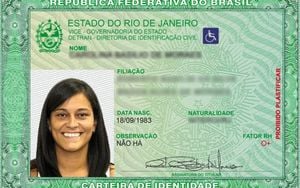The 25th anniversary of International Mother Language Day was celebrated with vigor at the Silver Jubilee event held on February 21st, 2025, in Bangkok, Thailand, where attendees emphasized the need to safeguard linguistic diversity globally. This event, co-hosted by the UNESCO Regional Office, the Embassy of Bangladesh, the Embassy of Switzerland, and Mahidol University, gathered policymakers, linguists, and representatives of civil society to highlight the challenges surrounding language preservation and education.
Soohyun Kim, the Regional Director of UNESCO Bangkok, addressed the audience, uttering powerful sentiments on the importance of language, stating, “Languages are not just words—they are worlds. When a language disappears, we lose more than vocabulary; we lose a way of connecting generations.” Her insights reflected the urgent need to place linguistic diversity at the forefront of educational and cultural policies, particularly as technological advancements continue to shape our society.
During the celebration, the discourse revolved around the alarming fact revealed by Kim: nearly 37% of learners globally are not taught in the language they understand best, and at least 40% of the world’s languages are on the brink of extinction. This statistic underscored the reality of cultural erosion and the impact on education systems, particularly for children from indigenous and minority communities.
Ambassador Faiyaz Murshid Kazi of Bangladesh emphasized the broader objectives of this year’s celebration, stating, “This year’s Silver Jubilee aimed to build a case for mainstreaming linguistic diversity and multilingualism as part of the post-2030 international development architecture.” His remarks echoed the sentiments of many officials present who pledged their support for enhancing linguistic inclusivity within their respective governments’ educational frameworks.
One of the standout moments of the event was the emphasis on the successful educational methodologies employed by countries like Switzerland, highlighted by Ambassador Pedro Zwahlen. He remarked, “Multilingualism is part of the DNA of my country,” showcasing how Switzerland integrates multiple languages within its educational system from early childhood through secondary schooling, allowing children to learn in their mother tongue before introducing additional languages. This model exhibits the benefits of teaching children initially in their native language to cultivate connectivity and comprehension.
The event’s discussions made it clear: the need for well-defined language policies is not merely academic but foundational for achieving inclusive development. Education systems worldwide, particularly those in low- and middle-income countries, must prioritize linguistic diversity to prevent the disintegration of cultural heritage.
Soohyun Kim powerfully reinforced this notion by stating, “We create a more equitable world when all voices are heard, and everyone can express themselves in their mother tongue.” Her call to action also highlighted the importance of investing resources to incorporate local languages within educational and governmental systems to mirror the diversity of the populations served.
The legacy of the International Mother Language Day, initiated by Bangladesh, serves as both a reminder and challenge to uphold linguistic rights and affirm the role languages play in cultural identity and nation-building. Today, awareness grows around the need for comprehensive language policies to safeguard this rich heritage for future generations.
With approximately one language disappearing every two weeks, it is more urgent than ever for society to act. The commitments expressed at this year's Silver Jubilee serve as both motivation and responsibility to protect, preserve, and integrate linguistic diversity, ensuring no language or culture is left behind.
Global conversations about language diversity, empowerment, and education will continue, strengthened by shared experiences and mutual goals toward sustainable development. The path forward demands collective efforts to embrace the wealth of voices, ensuring languages thrive as integral parts of our global community for years to come.



